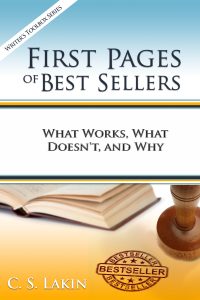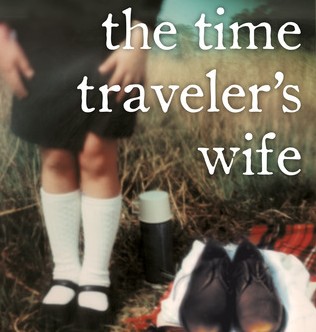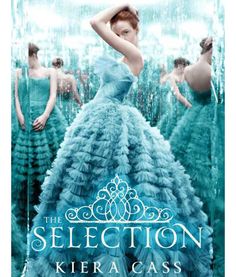First Pages of Best-Selling Novels: The Time Traveler’s Wife
This week, in our examination of first pages of best-selling novels, we’re taking a look at Audrey Niffenegger’s very creative and complex novel The Time Traveler’s Wife. This novel has been called a romance, a magical realism novel, fantasy. It’s a hybrid of many genre elements, and while that often poses a big problem for targeting a reading market, the strong premise and clever structure transcend the usual barriers to drawing in readers.
We’re using my first-page checklist to go through the author’s first page to see why it effectively draws the reader quickly into the story. While novels don’t have to have every one of these checklist elements on the first page, usually the more they do have, the stronger the opening.
Of course, the plot and premise of a novel is going to come into play here. Genre also influences what kind of opening scene will work best for a story. While there are a lot of ways an author might begin, regardless of genre, plot, and premise, opening pages need to grab readers’ attention and keep them reading.
Niffenegger breaks some of the “rules” of opening scenes, as do many big-selling best sellers. As you may have noticed in this series so far, this seems common. Those opening pages are crafted creatively to draw readers quickly into the story situation, full of mystery and/or conflict. She spent five years writing this novel, and, not surprisingly, she wrote the scenes out of order, beginning with the ending. This kind of story lends itself to being written that way!
Similar to Gone Girl, this novel alternates between two characters’ points of view—those of husband and wife, in first person—giving readers a close personal look at dual protagonists and their core needs and inner conflict. The result is a heavy emotional ride, and in this novel the circumstance of Henry’s condition is the source of all emotion, conflict, and plot development.
So let’s look at the first page of The Time Traveler’s Wife. Here is another example of a novel using a prologue. We talked about prologues in some earlier posts, when to use them and in what ways.
Prologue
Clare: It’s hard being left behind. I wait for Henry, not knowing where he is, wondering if he’s okay. It’s hard to be the one who stays.
I keep myself busy. Time goes faster that way.
I go to sleep alone, and wake up alone. I take walks. I work until I’m tired. I watch the wind play with the trash that’s been under the snow all winter. Everything seems simple until you think about it. Why is love intensified by absence?
Long ago, men went to sea, and women waited for them, standing on the edge of the water, scanning the horizon for the tiny ship. Now I wait for Henry. He vanishes unwillingly, without warning. I wait for him. Each moment that I wait feels like a year, an eternity. Each moment is as slow and transparent as glass. Through each moment I can see infinite moments lined up, waiting. Why has he gone where I cannot follow?
Henry: How does it feel? How does it feel?
Sometimes it feels as though your attention has wandered for just an instant. Then, with a start, you realize that the book you were holding, the red plaid cotton shirt with white buttons, the favorite black jeans and the maroon socks with an almost-hole in one heel, the living room, the about-to-whistle tea kettle in the kitchen: all of these have vanished. You are standing, naked as a jaybird, up to your ankles in ice water in a ditch along an unidentified rural route. You wait a minute to see if maybe you will just snap right back to your book, your apartment, et cetera.
After about five minutes of swearing and shivering and hoping to hell you can just disappear, you start walking in any direction, which will eventually yield a farmhouse, where you have the option of stealing or explaining. Stealing will sometimes land you in jail, but explaining is more tedious and time-consuming and involves lying anyway, and also sometimes results in being hauled off to jail, so what the hell.
Why This Works
So let’s go through the checklist elements and take a look at how this first page measures up.
Opening Hook: This is a brilliant prologue with a strong hook. The prologue likely totals 2+ pages, but just the first page is enough to draw the reader into a scenario that is unique and fascinating. The idea of a husband who disappears and goes where his wife cannot follow intrigues. The hook also comes not just through the interesting circumstances, but through the emotions of the characters—their love for one another, their inability to control the circumstances, etc. The author does a wonderful job of capturing/creating unique character voices and showing their heartache and angst in the midst of something they cannot control.
Introduction of main character in first few lines: The prologue is written in first person from the POV of both the wife and husband. The prologue opens in the wife’s POV/voice—we hear her love and wistfulness, we see a bit of her heart. The husband’s POV follows where we’re shown his frustration and angst. So well done.
Starting the story in the middle of something that’s happened (or happening): Absolutely. We’re given a picture of what this couple is dealing with/has dealt with. We’re immediately drawn into their struggle. It’s as if both are being interviewed, and they’re answering questions posed to them. It adds to the originality of this opening and gets right into setting up the difficult circumstance Henry and Clare have to deal with every moment of their lives. The “interview” ends with the prologue, by the way, and then the rest of the book is akin to diary entries that skips around in time (naturally).
A nod to setting; avoid excessive exposition or narrative: We don’t see right away where this book is set; the emphasis is on the situation they are in and the emotional cost it incurs. In so doing, the author avoids the excessive narrative that bogs down many first pages. Yes, it’s narrative in first person, with each character telling his/her thoughts and feelings, but it isn’t the author explaining the situation to the reader. The characters “speak” with a stream of consciousness that shows—evokes imagery with sensory detail similar to watching characters play out a scene via third person narrative.
A catalyst, inciting incident, or complication introduced for your character: While there is no present-time incident in play, we learn that the husband disappears and the reader is left wondering why, what happens, and how this phenomenon impacts the characters lives. The way each describes the impact of Henry’s condition comes across as the clear complication for this story. A strong, unique concept that’s presented in full steam on page one.
A hint at character’s immediate intentions: Not in blatant terms. Instead, the author presents the problem and the reader is left to assume the characters’ intentions are to figure out a solution and/or survive the trauma this issue is causing.
A hint at character’s hidden need, desire, goal, dream, fear: The author does a wonderful job in the prologue of capturing the characters’ fears—fear of loss is primary—the loss of what they know and love, each other and the life they share together.
Unique voice/writing style: Unique in the sense that the author immediately draws us into the characters’ voice/emotions and their lives. She does a great job making us feel the characters’ feelings—she puts us inside their skin.
Setting the tone for the book: Yes. Strong sense of confusion, grief, and a loss of control which permeates the entire story.
A glimpse at character’s personal history, personality—shed light on motivation: That’s all there, quite strong. Lovely writing gets right into their unique personalities.
Hint of character’s initial plot goal: Yes, again, this is done through the use of first-person POV and the author’s skill at drawing the reader into the characters’ emotions and struggles.
A course of action/decision implied. Introduction of high stakes/dramatic tension: The author gives the impression that the characters are at the end of their ropes,that they must find a solution to this issue in order to survive. High-stakes drama—definitely.
Good pacing; jump right into present action. No backstory: There’s no backstory here. The characters are reflecting on what it’s like to deal with this issue of disappearing—of losing the moment and finding themselves in unknown territory. The wife loses her husband and whatever they were doing in the moment. The husband loses the same and finds himself somewhere unknown. Their individual reflections on the past and continuing events, takes the reader right into the thick of the scenario that will become the story.
- One characteristic to reveal that makes your character heroic and vulnerable: Both characters are heroic for surviving the trauma their issue presents. Both are vulnerable because of the pain/struggle caused.
- One element of mystery, something hinted at that raises curiosity: What in the world is going on? The reader will feel compelled to keep reading.
- One element out of the ordinary, unusual, that makes the book different/stand out: The story is wonderfully imaginative. Though time travel is explored often in sci-fi or fantasy novels, the focus of how it impacts a marriage is unique.
- Concise, catchy dialogue (if in the first scene) that is not boring or predictable: No dialogue. Interesting how often I’ve written that in these analyses. I hadn’t realized how infrequently authors use dialogue on first pages, at least in the more literary genres and/or first person accounts.
- A hint at theme: A theme of loss hinted at through the characters’ emotions.
What Could Have Been Better
This section is going to be very short because, honestly, I have no complaints. I’ll mention a few little things, but, really, they’re inconsequential. Niffenegger does such a beautiful job with this prologue. We’re swept into this story, engaged by these two characters with their sensitive, passionate voices. It doesn’t take more than a heartbeat to start caring about them.
So, if I had to nitpick, I would toss these lines: “Everything seems simple until you think about it. Why is love intensified by absence?” The first part is vague; the second is telling, not showing, and hence, not needed. What is “everything” that seems simple? It doesn’t sound to me as if anything in their lives is simple. Does she mean those daily tasks she’s talking about? And how does that connect to “why is love intensified by absence”?
We all know that’s basically true, but why is she asking why? Why not just say something like “I’ve learned the truth of the saying ‘absence makes the heart grow fonder’—more than most people”—or something to that effect. Those lines, I think, weaken the overall perfection of Clare’s thoughts. And, why not just show that passionate yearning love she is daily experiencing by his absence (which is shown in the book throughout) instead of making a general statement.
She also asks, “Why has he gone where I cannot follow?” Which is not really the issue. Yes, later in the novel they try to get to the root of why he time travels, but this isn’t really her primary concern. The issue here is the loss she feels, not the need to understand why he leaves. It’s subtle, but I’d rather something more like “He goes where I can never follow—not places but times past or future, where there is no door I can open to chase after him.”
Also, since Henry seems to be answering an interviewer’s question, to be consistent, I’d rather Clare’s section begin with a line that sounds like she’s responding to a question as well, to be consistent structurally. To make this more poetic, I’d have her start with the same words: “How does it feel?” It would tie the two sections together beautifully.
Those are really my only nitpicky issues.
On another note: some might not like the second-person approach with Henry’s part, but I like it and think it gives a personality flavor for the way Henry talks.
I love the way he gives a scenario that appears to be a generalization of what happens to him when he travels, but he uses specifics, from one or more real incidents to paint a very visual picture. He could have just told that he loses his clothes every time he travels, which would be “telling.” This is a great example of how specific details bring scenes to life, and writers can learn a lot about that just from these few paragraphs on the first page of this gorgeous novel. If you haven’t read it, treat yourself to an amazing story that will stick in your mind for weeks after you finish.
Your thoughts? What did you like best about the opening? Anything you didn’t like? Did you get enough of a sense of their relationship and how Henry’s condition impacts their lives?
 Want to read all the analyses of best-seller first pages on Live Write Thrive?
Want to read all the analyses of best-seller first pages on Live Write Thrive?
Get the compiled collection of posts, along with additional insights and instruction that will help your first pages rock!
First Pages of Best Sellers: What Works, What Doesn’t, and Why is available in Kindle ebook and paperback! Get yours HERE!












“Why has he gone where I cannot follow?” is perfect. Nowhere in the prologue is there any mention of time travel. We can guess, but we do not know. “He goes where I cannot follow – not places but times past or future” is telling and gives away the secret of what the story is about.
Also, “everything is simple until you think about it” is the basis of the entire book. Time travel seems simple at first glance…you go back in time, you go forward in time. But there are so many more complexities involved. Consequences for the future based on what you do in the past. If you went back in time and prevented JFK’s death, how would that affect the future? It’s not simple at all.
I do agree that starting Clare’s section as a response to a question as Henry’s does would give balance to the two intros.
You allude to the character’s voice and I think that has a certain power in this opening scene that makes it memorable. Ever since I read Ulysses and experienced Molly Bloom’s soliloquy, I’ve always been a fan of the technique. I think Niffeneger does a great job with voice here, especially by letting the wife’s voice introduce some of the other characteristics that you mention are so crucial to the opening of a story.